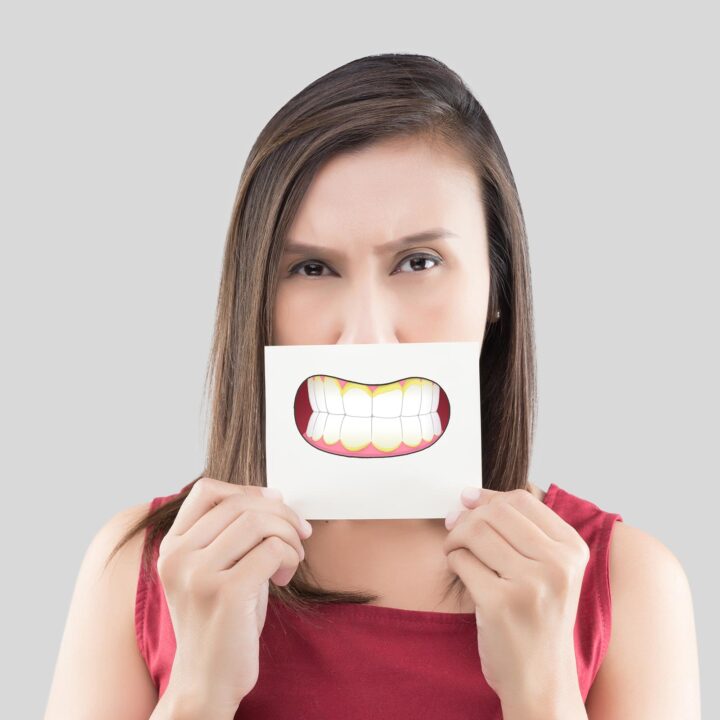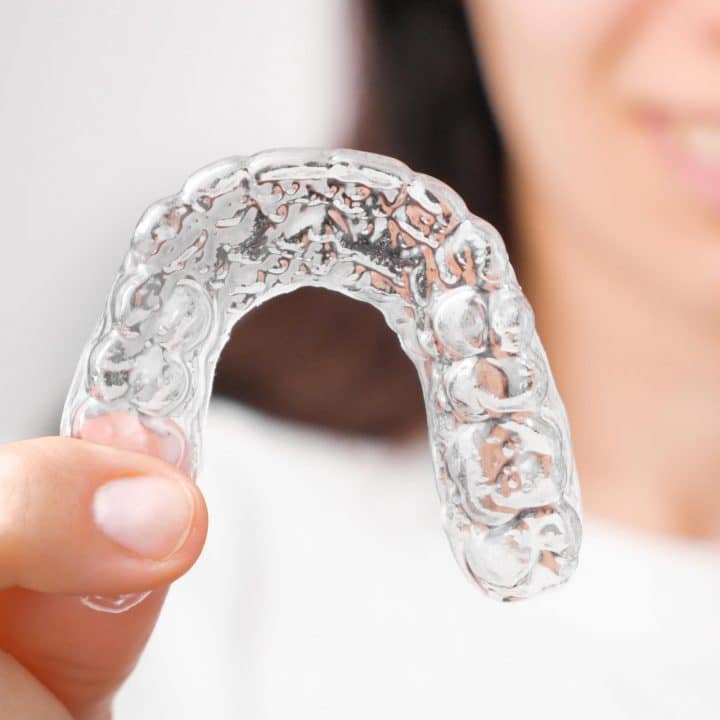TMJ (grinding and clenching of teeth)
Constant headaches, soreness of neck and shoulder, tenderness, stiffness and fatigue in the muscles of the face, clicking or popping in the jaw joint, limited movement or locking of the jaw? TMJ disorder symptoms are so common that many people do not realise that their jaw may be the cause of their problems.
The temporomandibular joint (TMJ) is a complex hinge joint that connects the jaw bone to the skull and allows it to move around as you eat and speak. It consists of bones, cartilage, nerves and blood vessels, articular disc, joint fluid, ligaments and muscles, but the teeth and your bite also play an important role into it.
TMJ disorder (TMJD or TMD) is the name given to a range of problems that affects the TMJ, which may be caused by a whiplash or a heavy blow to the jaw, grinding or clenching of teeth, erosion of the joint disc and arthritis. The use of orthodontic braces, poor diet, lack of proper sleep and prolonged periods of stress and anxiety are also common factors that are often associated with the development of TMJD. It can affect one or both sides of the jaw, and it is most common among women between the ages of 20 and 40.
During the early stages of this disorder, no significant symptoms may be present, making it harder to understand that you’re having problems with your TMJ. However, your dentist may find some signs within your mouth and teeth that may suggest you started developing this condition.
Later on, the symptoms may become more prominent and easily recognised as uncomfortable pain and restriction of jaw movements are quite present. At this stage, degenerative changes of the articular disk and ligaments will be present.
The most common causes of TMJ dysfunction is a damaging habit of clenching or grinding the teeth. Clenching tends to damage the joint more than the teeth, whereas grinding severely wears the teeth down. Both are believed to be coping mechanisms used during times of tension or stress.
Clenching and grinding commonly cause teeth sensitivity, crack of teeth, fillings and crowns, and changes in teeth position.
Such conditions can often be successfully treated with an intra-oral appliance (occlusal splint). A splint is a mouthguard-like device that is mostly worn at night, which helps to relax the muscles and articulation by reducing or eliminating the clenching or grinding habit. In some cases, injections of muscle relaxers into the muscles of mastication will help to reduce the tension on the TMJ.
Depending on your particular condition, we may suggest combining dental treatment with acupuncture, physiotherapy, remedial massage, osteopathy and chiropractor. Counselling services and the practice of relaxation techniques may be considered if your problem is related to stress and anxiety.



